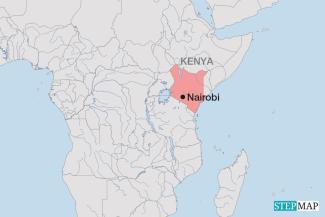Kenya
Homosexuals are still discriminated against in Kenya

Not only homosexuals, but all LGBTQ persons feel discriminated against. LGBTQ is an acronym that stands for “lesbian, gay, bisexual, transgender and queer or questioning”. The “Q” leaves room for the other sexual identities and orientations not covered in the acronym.
Kenya’s first laws that outlawed homosexuality were passed in 1930 and were premised on English culture. Human-rights advocacy groups particularly oppose sections of the penal code that criminalise sexual activities that are perceived to be “against the order of nature”. For instance, in section 162, the penal code pronounces a 14-years sentence upon any person convicted of “carnal knowledge of any person against the order of nature.”
LGBTQ lobbies and rights groups say that these sections of the law have exposed queers to unwarranted violence and discrimination while fomenting perceptions that queers are a criminal lot.
Over the years, law enforcement, the educational system, religious leadership and cultural influences have been complicit in normalising the collective offensive against this vulnerable demographic. “It is a very stressful situation,” says Kevo Mulumba, a gay man currently in the university in the capital Nairobi. “I’m forced to live in anxiety. Sometimes, even interacting in public or with my friends could trigger negativity from those around me, including the police.”
Research conducted in selected hospitals in Nairobi revealed varying degrees of disapproval of homosexuals among healthcare professionals. The study stated that the disapproval of same-sex practices mainly stemmed from the healthcare providers’ personal values, societal norms and religious beliefs.
“Persistent discrimination and social stigma take a toll on the mental health and well-being of LGBTQ individuals in Kenya,” explains the Gay and Lesbian Coalition of Kenya. “The effects (…) result in higher rates of depression, increased anxiety attacks and suicide ideation amongst others. The fear of rejection and the mounting societal pressure including profound homophobia contribute to these mental health challenges.”
Reports indicate that homosexuals and queers, faced with homophobic treatment in some public hospitals, have even resorted to seeking alternative healthcare.
Despite these overly restrictive provisions, there have been positive steps towards realising full rights for LGBTQ people in the past decade. A notable development was through the East African Community Sexual and Reproductive Health Bill, which places a premium on comprehensive sexual education at the regional level.
Kenya’s LGBTQ community has additionally scored several significant victories in the courts, further cementing the legal grounds for the protection of queers. Among these cases were a case in which the courts determined that the use of forced anal examination is illegal, as well as a case that upheld the right of LGBTQ people to form and register organisations.
However, a lot still needs to be done to facilitate better health outcomes for LGBTQ persons in Kenya. This includes greater sensitisation of healthcare workers on the need to provide quality care to all people regardless of their sexual orientation. The laws also need to be amended to correct those contentious provisions that further propagate discrimination against the queer community.
Joseph Maina is a freelance writer based in Naivasha, Kenya.
mainajoseph166@gmail.com








